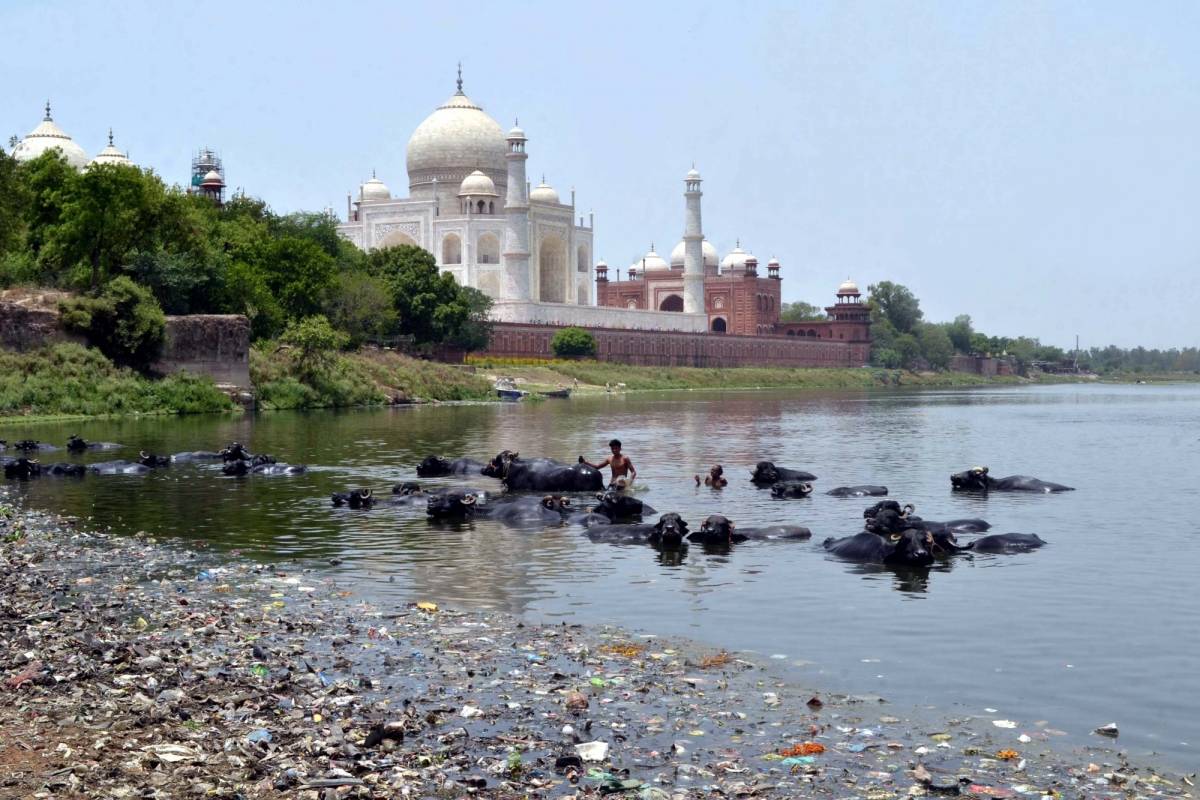Local green activists blamed the state government agencies which had dug up the whole city for various developmental projects….writes Brij Khandelwal
When people in Agra learnt from daily newspapers on Tuesday morning that the city ranked third among the most polluted cities in India, nobody was amused. Rather a range of questions began doing the rounds questioning the claims of government agencies engaged in the Swachch Bharat Abhiyan.
Since the Supreme Court took up the PIL of MC Mehta on pollution threats to the Taj Mahal in 1993, thousands of crores of rupees have been spent in the Taj Trapezium Zone on controlling pollution, but the results are not visible to the public.
On Monday, Agra was in the red zone, with the ambient air becoming highly toxic and polluted. Ahead of the Diwali celebrations the alarm bells have begun ringing. In the list released by the Central Board for Pollution Control, Agra’s AQI index was 327, with the dust level (Suspended particulate matter SPM), PM 2.5, Carbon Monoxide levels shooting up beyond tolerable limits.
The State Pollution Control Board has routinely sent out notices to a number of agencies including the Metro Corporation, the UP Jal Nigam, the Smart City Co and the Agra Development Authority, directing them to follow the guidelines to bring down the pollution levels. Vishwanath Sharma, regional officer of the UPPCB, said action would soon follow against those found responsible for adding to the pollution in the city. Close to the Taj Mahal, the pollution level was found to be dangerously high.
Local green activists blamed the state government agencies which had dug up the whole city for various developmental projects. The National Highway Authority too has been accused of not promptly attending to calls for road repairs of the three national highways that crisscross the city. Work on the Agra Metro in the vicinity of the Taj Mahal has also added to the pollution, environmentalist Devashish Bhattacharya said.
Clearly, in the city of monuments, Prime Minister Narendra Modi’s ‘Swachch Bharat Abhiyan’ (Clean India Mission) appears to have run aground and made no discernible change to the city’s profile or the upkeep of basic amenities, according to the locals, though the mayor and other officials of the Agra Municipal Corporation dismiss these concerns.
“The reason why the city remains so dirty and disorganised is because of the wrong priorities of the government. The officials spend more time on organising fairs and festivals than on getting the basics fixed,” feel members of the River Connect Campaign. “Cleaning up the city and streamlining the traffic management plan, or improving the law and order situation, are nowhere on the priority list,” they said.
Local politicians have no role to play in cleaning up the city or the Yamuna river. On paper, public toilets have been opened but in large parts of the city, people still defecate in the open, along the drains. “As you enter the city, a strange stink or odour hits you and never leaves you till you leave the city.”
“Elsewhere they roll out a red carpet for guests. In Agra you have animal dung on the roads and a stink in the air welcoming people. Little wonder no one wants to stay back for the night in Agra,” Surendra Sharma, president of the Braj Mandal Heritage Conservation Society, said.
Environmentalists in the city blame the Yamuna river, which has been reduced to a huge sewage canal for want of fresh water. “The city’s sewer system is choked, the treatment plants are not working. In many localities waste water, including sewage is being directly pumped into the earth through borewells,” a river activist said.
Agra’s sewage system is maintained by a Chennai-based company, which has come under heavy fire from all sides, while a Bengaluru based company has been hired for garbage collection in the city.

